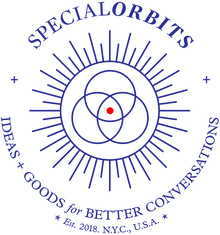
AN IRREGULAR EMAIL
Ideas for creative work and better conversations.
SUCCESS!
Welcome! We'll be sending you a couple of things soon, so in the meantime please add our email to your address book.

Ideas for creative work and better conversations.
Welcome! We'll be sending you a couple of things soon, so in the meantime please add our email to your address book.
